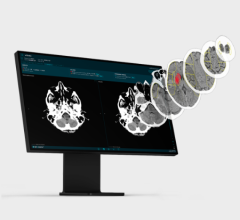
Stefan Vilsmeier, President and CEO of Brainlab Photo courtesy of Brainlab
June 26, 2020 — Brainlab announced the foundation of new subsidiary, Snke OS, with 65 employees coming from Brainlab and plans to fill 100 new positions. The team is already working out of its new headquarters in the Bogenhausen area of Munich, developing the first digital platform for surgery, rooted in current Brainlab software. The move allows Snke OS to market to a wider circle of industry start-ups, partners and competitors. The software framework developed by Brainlab, with over €500M invested over the last 30 years, is an established benchmark in operating room digitalization for specific, highly complex fields such as neurosurgery. The full diversity of its functionalities can now be used by third parties for a broad range of clinical applications.
In lieu of initiating their own development from the ground up, existing Brainlab partners, as well as competitors, startups and large companies in the pharma and medical technology industries can build on Snke OS technology and open interfaces to digitally saturate the operating room more quickly, efficiently, and cost-effectively.
Patient-specific model for precision procedures and optimized treatment methods
Snke OS uniquely bundles very complex technologies: A universal statistical patient model is coupled very precisely with individual anatomy, aggregated from numerous diagnostic images, creating a digital representation of each patient. During surgery, this patient-specific model is continuously correlated in relation to the precisely captured movements of the instruments used, thus enabling accurate surgical navigation and verification.
The anatomy is also linked to video data to extract additional workflow information, document surgical progress, and dynamically update the patient-specific model with the help of artificial intelligence (AI). The statistical data obtained flows back into the universal patient model and serves as a central knowledge base for researching better treatment methods.
Tapping into more effective digitization with open interfaces
Snke OS uses open interfaces, making it possible for other medical technology companies to integrate their own solutions for imaging, navigation, robotics, cloud computing, AI as well as mixed reality into an overall system to more effectively tap into the possibilities of digitization. This expands the platform’s utility and opportunities in other surgical specialties like heart, liver, craniomaxillofacial, spine, and ear, nose and throat (ENT), as well as in oncology.
“Surgical procedures are still very analog,” said Stefan Vilsmeier, President and CEO of Brainlab. “With the data obtained from deep digitization, efficiency deficits can be analyzed and treatments individually optimized for each patient.” Key factors are facilitating and accelerating the need to scale the digitization of surgery: Surgical interventions represent a substantial value driver for hospitals; and, the current coronavirus pandemic has revealed the necessity for change.
Andreas Giese, Managing Director, Snke OS, explains the background of this new subsidiary: “The physical and organizational separation from Brainlab facilitates the expanded and dynamic development of our software architecture, which in turn expands its utility to a much broader spectrum of clinical challenges. Snke OS will deliver universal functionality across the healthcare data economy. To achieve our goals, we’re searching for talent, especially in the AI domain.” Snke OS is hiring for the company’s headquarters in Munich, a global epicenter for AI and data analysis, as well as for satellite offices in Tel Aviv and San Diego.
For more information: snkeos.com


 February 03, 2026
February 03, 2026 









